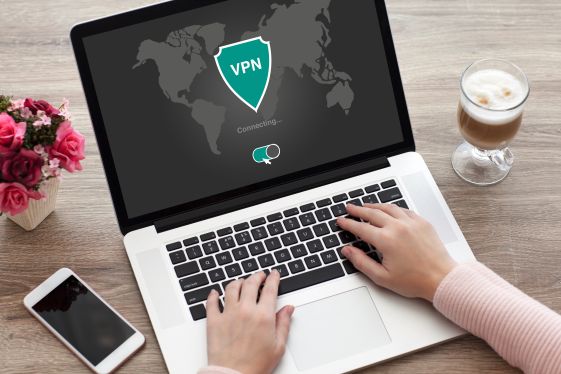Numerous conveniences are now at our fingertips because of the digital age’s explosive rise. Everything in our daily lives now involves the internet, from banking to socialising to work-from-home arrangements. However, the conveniences come with risks. Cyber threats, identity theft, surveillance, and data breaches are now all too typical for internet users around the world. Cybersecurity is now expected, not optional.
Virtual Private Networks (VPNs) have emerged as one of the most effective strategies for increasing online security, despite the fact that there is no magic answer for being entirely safe online. This essay discusses how VPNs may simplify the difficulties regarding cybersecurity.
Recognizing VPNs
A VPN service basically creates a secure connection between your device and a server that the VPN provider manages. Once connected, your web traffic is routed through this secure tunnel, safeguarding you from a number of online threats.
Key advantages of utilising a VPN:
Privacy: By hiding your IP address, VPNs essentially obliterate the ability to track your online behaviour. This is crucial if you routinely use open Wi-Fi networks, which fraudsters utilise as a sanctuary.
Every bit of information you send or receive is encrypted, rendering it difficult for hackers to read it even if they intercept it.
Geo-restriction Bypass: VPNs can make it appear as if you’re accessing the internet from a different location, enabling you to bypass geographical content restrictions.
Mysterium Streaming VPN
Mysterium streaming VPN merits special notice in the world of VPN services. Unlike traditional VPNs, Mysterium uses a decentralised approach and makes use of the possibilities of blockchain technology. In order to provide a more scattered, quick, and secure internet experience, it links users to a global network of residential IPs.
Here’s why Mysterium’s streaming VPN is standing out:
Decentralisation: Traditional VPN services depend on a set number of servers, often centralised in specific locations. Mysterium’s decentralised nature means that the risk of severe seizures, shutdowns, or companies handing over your data is minimised.
Speed and Reliability: With a global network of residential IPs, users experience optimised speeds suitable for streaming and other data-intensive tasks.
Payment Flexibility: Mysterium uses cryptocurrency-based transactions. This guarantees anonymity and allows users the option to only pay for the precise quantity of data they use.
Open-Source: Mysterium’s code may be audited by anyone thanks to its open-source status, promoting transparency and user confidence.
Beyond VPNs, cybersecurity
Despite the fact that VPNs are critical for improving online security, cybersecurity extends beyond them. Consider the following additional steps:
Regular Software Updates: Ensure that your device’s operating system and applications are regularly updated. Cybercriminals often exploit vulnerabilities in outdated software.
Strong Passwords: Always opt for unique and strong passwords for your online accounts. You can create and manage complex passwords with the aid of password managers.
Multi-Factor Authentication: Use MFA wherever possible. As two or more verification techniques are required, this increases security.
Safe Internet Use: Use caution when choosing which websites to visit, which links to click, and which files to download. Avoid visiting websites and emails that seem shady.
In Conclusion
As the digital era progresses, it becomes almost obvious that our online footprints consist of more than just a record of the websites we visit and the social media updates we make. It’s a mosaic of our personal, professional, and even intimate information, spread across the vast expanse of the internet. Given the value of this data, its protection should be our essential priority. A strong layer of safety is provided by tools like VPNs, especially cutting-edge options like Mysterium streaming VPN, which may mask our online identities from snoopers and criminal actors.
However, the essence of cybersecurity transcends a single tool or service. It involves developing a multi-layered defence plan. Imagine it as the construction of a fortress. A VPN may serve as the towering walls guarding against external threats, but the battlements, watchtowers, and moats – in the form of software updates, strong passwords, safe browsing habits, and multi-factor authentication – play equally vital roles in ensuring the fortress remains impregnable.
Additionally, it’s essential to develop a vigilant and cautious mindset while we use these technologies. In many instances, human error proves to be the weakest link in the cybersecurity chain. Knowing the latest risks, realising the need for good digital hygiene, and taking needed measures to safeguard our online security can make a world of difference.
Conclusively, you have to make sure that cybersecurity management is changing and evolving. As new threats emerge, so do innovative countermeasures. Staying updated and adapting to these changes is not just a recommendation but a necessity for anyone who ventures online.
In this regard, VPNs serve as more than just instruments for our online travels. They enable us to confidently and comfortably explore the vast reaches of the internet when used in conjunction with other safety precautions. Such tranquillity of mind is definitely priceless in this day and age of uncertainty and digital risks.






![YouTube SEO in 2024 [Definitive Guide]](https://getpixie.com/wp-content/uploads/2024/02/shutterstock_1684828252-1-150x150.jpg)








